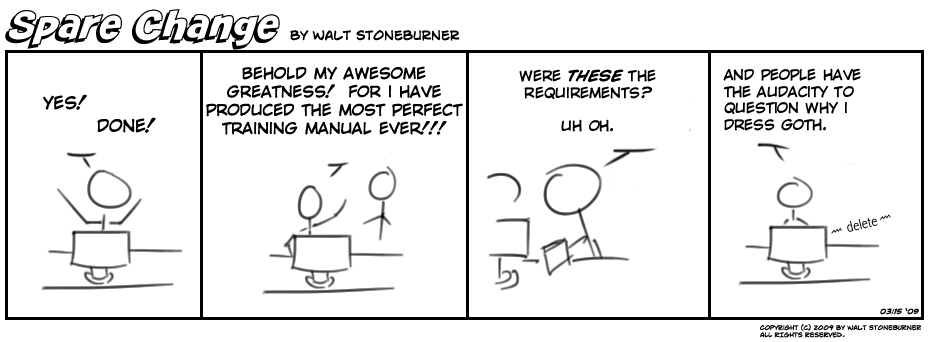Rapid Prototyping for Education
Rapid Prototyping is designing an ID program or software using a "live" version. For example, Apple's new voice assistant program, Siri, is a rapid prototype or in "beta" as some might say. As people use it and provide data designers and developers are able to make adjustments with the model. The alternative is mapping out a software and imagining a wide range of potential bugs and glitches. Many web 2.0 products are released in beta as rapid prototypes once a foundation is laid. The result is real world feedback with real world fixes. In education rapid prototyping would be ideal because of the hands-on feedback and interaction with subject matter experts and endless testers. For example, an ID team could release a role-playing game where currency is math solutions. Working in beta would allow the team to make adjustments to the user experience, correct glitches and receive active feedback from instructors and students. The advantages would come in phases of saving money by creating a homegrown solution, increased collaboration between designers and subject matter experts, and immediate feedback from students on usability and design. The challenge is hiring a developer or designer within K-12 for a district or school to help create such prototypes. Often times are options are limited to working with vendors and their "finished" products selling the assurance of customization.
On-the-Go Education and Training ID
While on base or in the classroom training can be performed with electronic means and place an emphasis on design theory and train-the-trainer materials with the subject matter experts. This will help prepare master instructors for teaching in the field during deployment since the mechanics of the subject are likely familiar to them. In addition quick guides that are printed can be provided for in the field training. They would need to be brief, with visuals and lightweight. Instructors would need to be prepared for hands-on training as well. For example training a squad on a new firearm or piece of radio equipment will require hands-on training from the instructors previous knowledge about the subject in addition to employing the use of training design theory. A printed pocket guide could provide specific commands and instructional photos for the radio training to reference at a later date.
Introducing Change
Change is one of my favorite things. In fact if there isn't enough change I get skittish. This is also where I get to implore all of the great PR and MBA skills I've accumulated. When introducing the ideas of GSTE and SUTE the underlying principle is readying the staff for change and integrating said change. To preview this topic among professionals I would start with individuals outlining the number one item they would change about the system. Then in small groups have them create a strategy to integrate each of their items simultaneously. Some groups would be asked to share their integration strategies and then we would look at the prescribed methodologies.
Professional Development on Campus
At North Carolina Central University we have a department called the Center for University Teaching and Learning which is a part of the academics division working closely with faculty and the distance education teams. CUTL offers instructional technology equipment available for reservation, on-demand training videos, monthly workshops and consultations. Programs range from learning theories to the how-to's of VoiceThread and Twitter.
At the University of North Carolina at Chapel Hill the department is referred to as the Center for Faculty Excellence. The CFE is a part of academic and the main library on campus. CFE offers a range of services including consultations and information regarding leadership, e-learning, teaching, mentoring and research. Workshops and seminars are held up to twice a week in various topics from classroom management, teaching portfolios, evaluating student learning and time management.
North Carolina State University's Office of Faculty Development is located within the academics division and offers a number of workshops, seminars, consultations, mentoring and recognition for faculty members. Workshop topics range from assessment to technology to academic integrity. Many of the past workshops have been archived here and are available for viewing along with additional materials.
As always... chuckles...


No comments:
Post a Comment